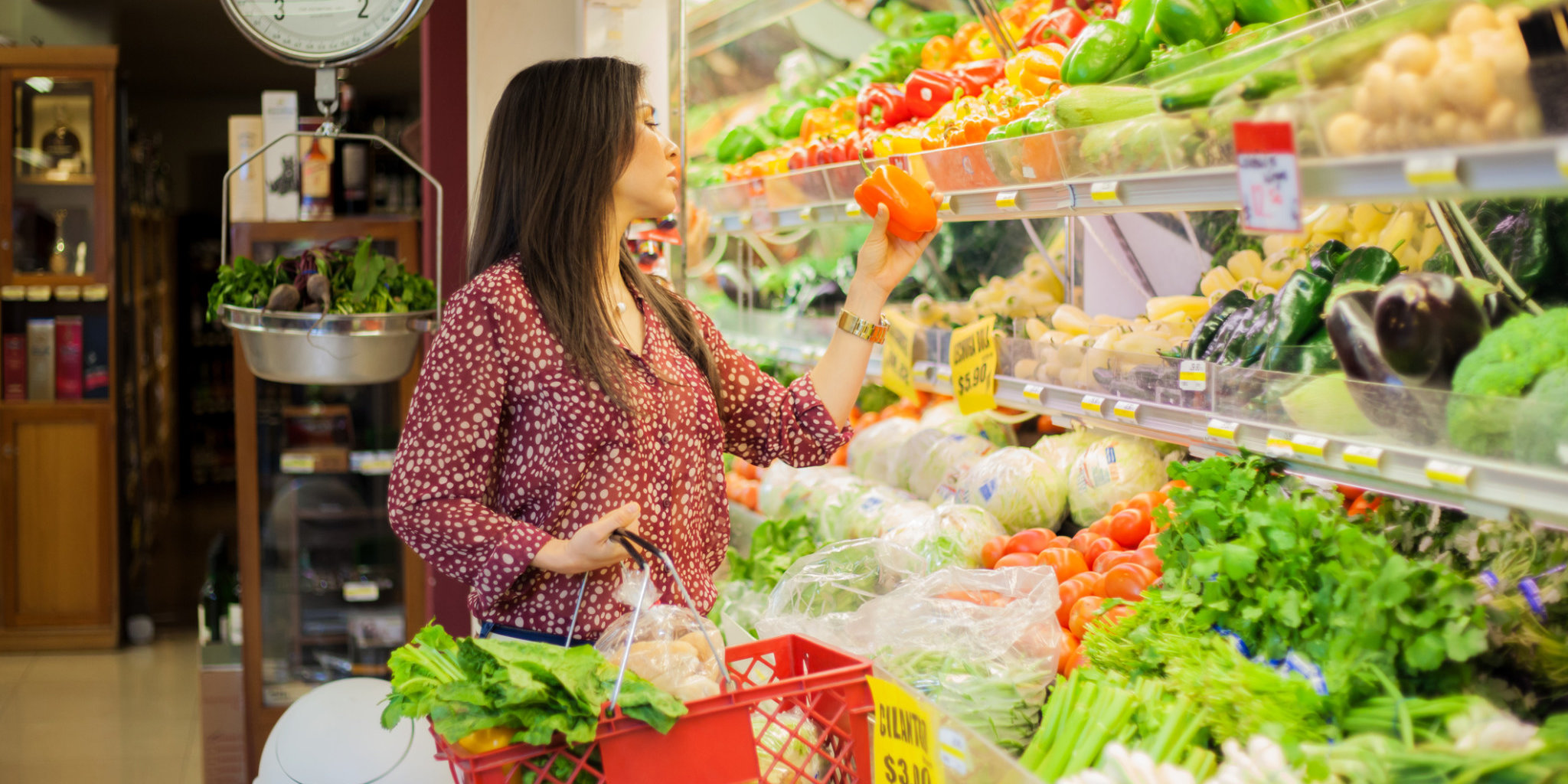The supermarket can be as much of a trap as a fast food restaurant—full of food that fills your stomach but doesn’t provide your body with the nutrients it needs. It pays to take a few minutes to understand how supermarkets work and how to get the most nutrition for your food dollar.
Supermarkets make most of their money from processed foods located in tempting locations throughout the store. But getting out of a supermarket with nutritious food that will feed you and your family without breaking the bank can be easy. Here are a few tips:
Start with produce: Remember that when you are hungry, your body is looking for nutrients and not just calories. Fill your cart with nutrient-dense (i.e., low-calorie, high-nutrient) foods such as fruits and vegetables.
Buy a rainbow: It is a wonderful coincidence that the ingredients that make foods colorful also make them good for us. Try berries, red peppers, tomatoes, eggplants, and other colorful foods.
Shop the perimeter: Processed foods live in the middle of the store. The outside sections of the store are where most of the unprocessed food lives: produce, meat, dairy, and eggs are all on the perimeter. (But be on guard—supermarkets are aware of this advice and sometimes display highly processed treats close to the broccoli!)
Seven or less: When buying packaged foods, a good rule of thumb is to choose those that contain seven or less ingredients. “Seven or less” foods tend to be less processed.
Know it or Throw it: If you don’t know (or cannot pronounce) an ingredient, you might want to choose another item. Of course, some foods are fortified with vitamins and minerals, so be responsible for your health and take the time to look up unfamiliar ingredients. For example, d-alpha-tocopherol is actually vitamin E, which is a definite keeper!
Go lean: Lean proteins, including beans, nuts, fish, and chicken, are all great choices.
Spice it up: We often reach for salt to make our meals taste better, but consider using spices instead of salt for a much healthier meal. Or try a blended salt that replaces some of the sodium chloride with potassium chloride. Most of us don’t get enough potassium and get too much sodium.
If you really want to make an impact on the amount of nutrition in your meals, skip the store altogether. Farmer’s markets and local delivery of farm foods are now more common than ever before. Buying foods when they are at their freshest is a great way to ensure nutrient quality, and farmer’s markets are a great way to get food that is locally produced and in season.
Buying healthy doesn’t mean you have to spend a lot of money, but it does mean you should have a plan of attack when you shop.\
For more healthy lifestyle tips, Subscribe Now to Naturally.






